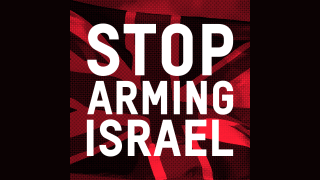
On Monday the 2nd of September the UK government announced the suspension of 30 out of 350 arms export licenses to Israel. This is the first time since the start of the war in Gaza that the UK government has admitted that there is a “clear risk” that UK-supplied weapons and components might be used in serious violations of international humanitarian law.
The announcement also came just a month after the UK dropped the previous government’s planned challenge to the International Criminal Court (ICC) regarding arrest warrants for Israeli leaders, and after the government renewed its funding for UNRWA (United Nations Relief and Works Agency). However, the grounds on which the Foreign Secretary halted 30 arms export licences did not cite their use in Israel’s bombing of Gaza, but rather separate concerns about whether enough humanitarian relief was being permitted and the mistreatment of Palestinian detainees.
UNA-UK has repeatedly called on the UK Government to suspend all arms exports to Israel in the face of overwhelming evidence suggesting that the Israeli Defence Forces (IDF) have committed serious violations of international humanitarian law, including war crimes.
“UK rules on arms exports mandate that each transfer be scrutinized for its potential to affect human rights. Given the grave violations by Israel in Gaza—such as attacking aid workers, hitting ambulances, bombing refugee camps, and demolishing civilian infrastructure, resulting in over 40,000 Palestinian deaths—UNA-UK urges an immediate ceasefire and a complete halt to arms exports to Israel, rather than a partial suspension.”
- Sophie Radice, Head of Campaigns UNA-UK
The decision, conveyed by Foreign Secretary David Lammy to the UK Parliament after a two-month internal review, focuses on items that could be used in the ongoing conflict in Gaza against Hamas. However, parts for F-35 fighter jets are notably excluded from this suspension. Lammy clarified that the suspension of the 30 licenses is not a blanket ban or arms embargo, emphasizing that the UK government continues to support Israel’s right to self-defence under international law.
The exemption of F-35 components represents a significant loophole, as around 15% of the value of each of Israel’s F-35 combat aircraft is produced in the UK. These aircraft are being heavily used in Israel’s bombing campaign in Gaza, which has so far resulted in the death of thousands of civilians.
Foreign Secretary David Lammy’s statement came on the same day that Danish news outlet Daglabet Information, together with NGO Danwatch, was able to definitively confirm – for the first time – the use of an F-35 stealth fighter to carry out a specific attack in Gaza which killed at least 90 people and wounded 300 others. The following day, lawyers representing al-Haq, a Palestinian human rights organization, and the Global Legal Action Network, who are contesting the legality of Britain's arms exports, stated they would persist with their case – shifting their focus to F-35 components and the broader use of munitions in Gaza.
The UK must take every possible measure to halt the transfer of weapons that could be used in this conflict, including by immediately suspending all arms exports to Israel. Failing to act not only implies the UK's complicity in this ongoing humanitarian crisis but also highlights a lack of cohesive foreign policy, with civilians bearing the consequences.
Read more:
-
Summary of the International Humanitarian Law (IHL) process, decision and the factors considered
-
Read the full statement from the Foreign Secretary
-
Read the global call for an immediate ceasefire
-
UNA-UK's head of policy calls on the UK to support Gaza ceasefire resolution
-
UNA-UK statement calling on the UK to halt arms exports to Israel
-
UNA-UK statement on the devastating violence in Gaza and Israel
-
Statement in support of the UN Secretary-General from former British senior officials
-
UNA-UK statement commending commitment to address the use of explosive weapons in populated areas




